A trip to Grand Army Farm
An intimate tour of Rosalie Truong's acreage tucked into the Missouri hills.
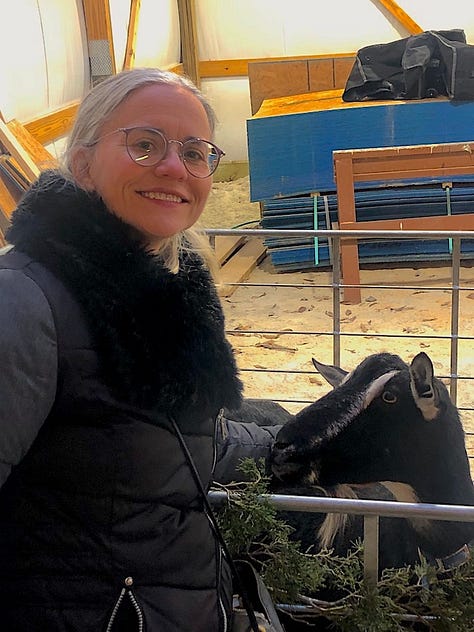
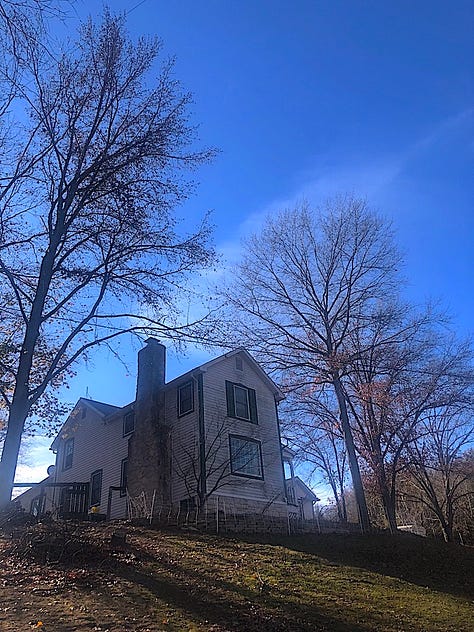
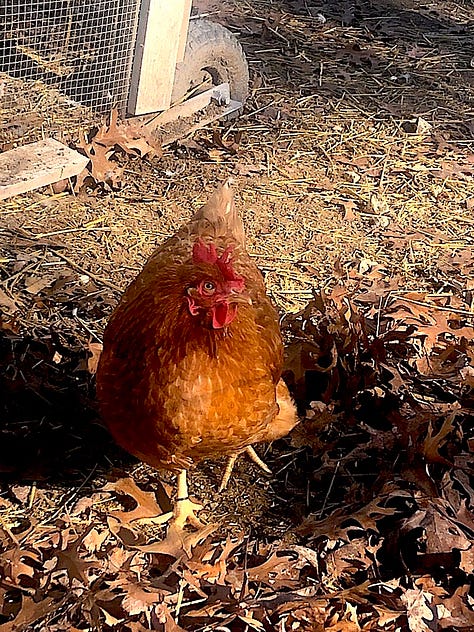
Rosalie Truong is nothing short of a legend around these parts. She’s a regular fixture at anywhere from three to five different farmer’s markets a week, selling her quail eggs, garlic, woolen cat hats, and other products to scores of customers. And she’s been featured on St. Louis Public Radio and in Sauce Magazine, the St. Louis Post-Dispatch, and St. Louis Magazine.
The last thing I want to do is duplicate those journalistic treatments here, but since I am one of Rosalie’s regular customers, I thought I’d give you an intimate tour of her farm through a few words and images. I chose this week on purpose, for those of us in the Christian tradition—whether actively practicing religion or not—celebrate the Star of Bethlehem lighting the way to the lowly manger where Jesus was born, surrounded by farm animals.
Rosalie was kind enough to open Grand Army Farm to customers by special invitation on the Saturday after Thanksgiving, and what better way to avoid the early shopping crowds, I thought, than to high-tail it to a farm instead?
Anthony, always a good sport, came along for the ride, and that was literal, as Rosalie’s caretaker gave quad tours up the steep hill to view the extent of the forested land. Perched on the slope is Rosalie’s successful experiment in biodynamic, or permaculture, gardening: a massive garlic bed. It’s mulched in wool fleece, of a lower quality fiber than you’ll find in the delicate hats Rosalie knits herself from the good stuff. It’s not from her own animals but rather a farm in Indiana where she drove out to haul it away.
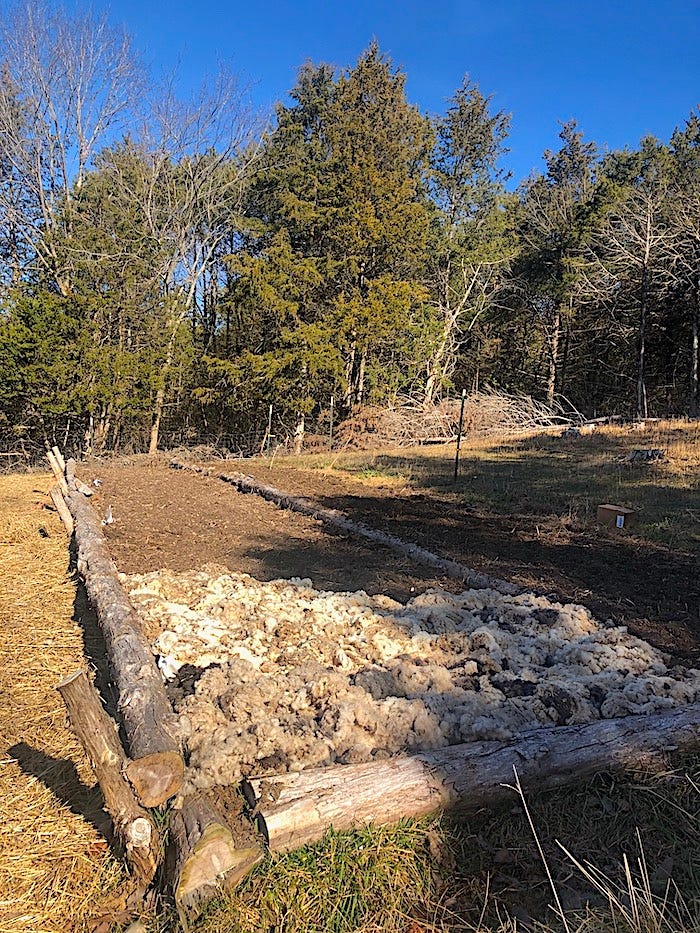
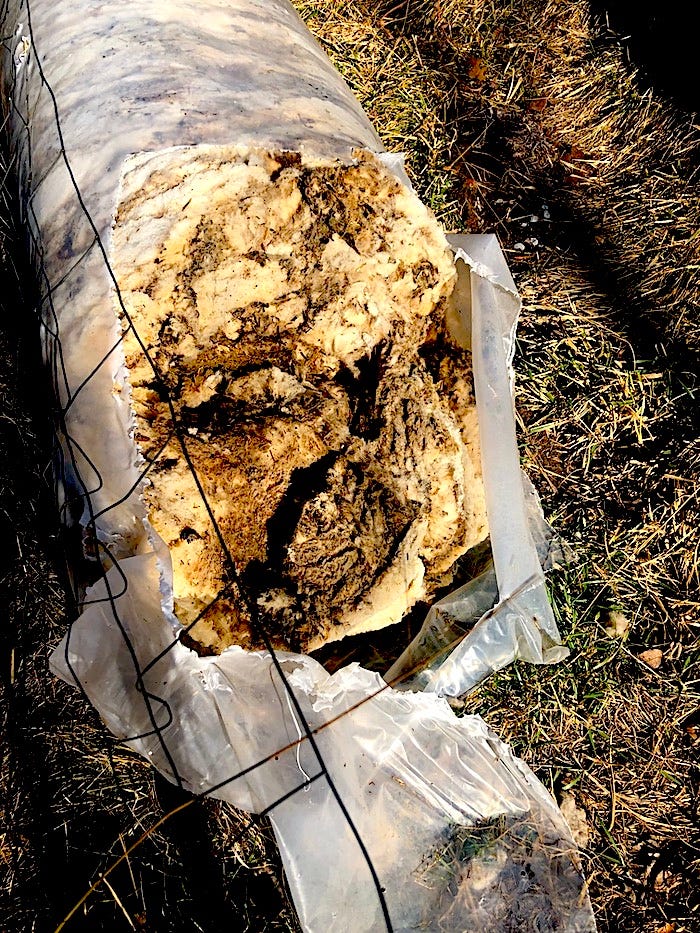
I buy raw goat milk from Rosalie, which you’re allowed to do in Missouri if you purchase it directly from the farmer. In my ongoing management of mast-cell activation syndrome, I’ve found that pasteurized milk tends to trigger symptoms, but raw never does. Pasteurization destroys vitamin B12, renders the amino acids and minerals less bioavailable, and strains the pancreas by requiring them to produce digestive enzymes.1 It also kills the beneficial, naturally occurring lactic-acid-producing bacteria that would protect the milk from pathogens, and that I think our bodies need.
I’m not surprised that raw milk is fine for me but pasteurized often causes a mast-cell reaction. They’re very different milks.
When Rosalie asked if I wanted to meet Lena, the goat who supplies my milk, I jumped at the chance. And after Lena and I bonded, and her enthusiastic owner asked if I wanted to milk her myself, I said yes.
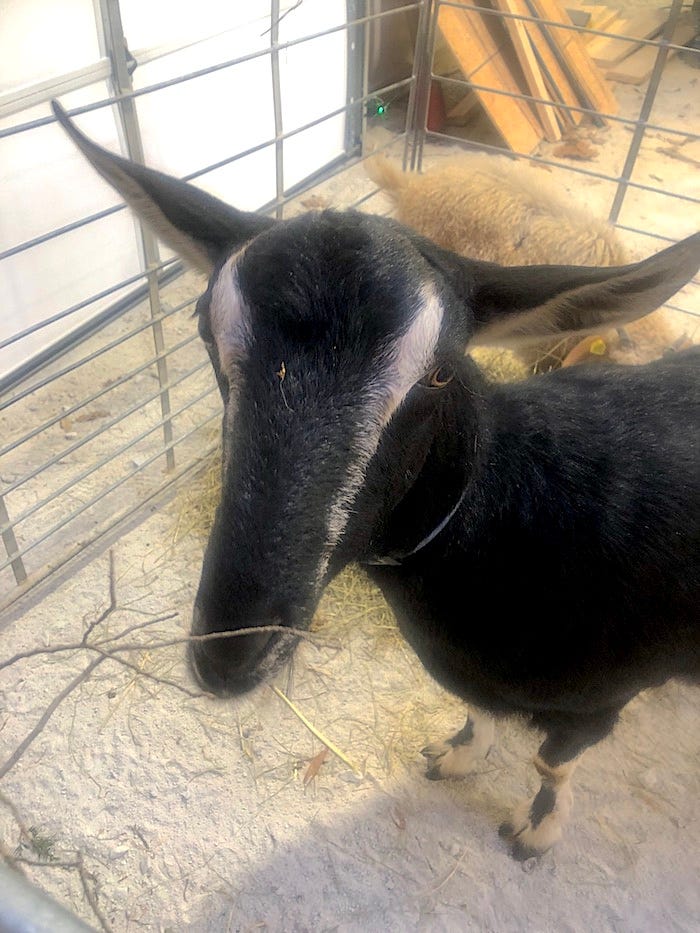
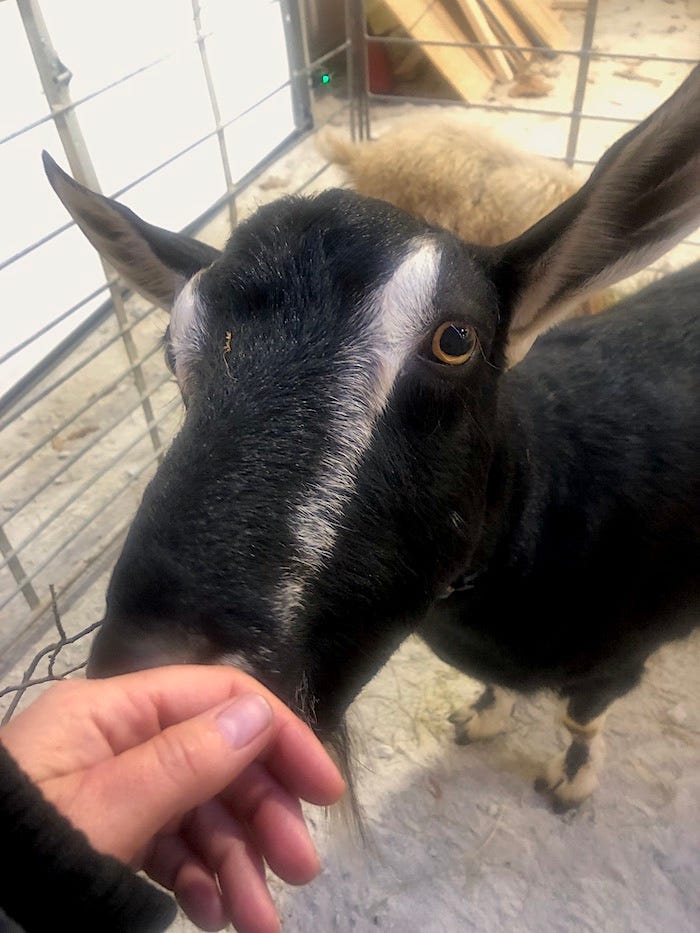
You rest your head on Lena’s side when milking her, and she kind of leans into you. It feels like what it is: a mutually dependent relationship forged over thousands of years of co-evolution.
There’s never been a better time to become a paid subscriber, as we’ve slashed the prices on all subscription levels, plus there’s a 25 percent discount now through January 15 on top of that. For our winter giveaway, we’re opening it up to all subscribers with six-month paid subscriptions or a six-month extension if you’re already a paid subscriber to five randomly drawn winners. The drawing will be January 15 at 9 am CDT.
If Anthony and I ever leave our city farmhouse, it will be in part because the 1/4-acre yard won’t support milk goats. They’re also banned from our burg.
But Grand Army Farm supports goats quite well—along with chickens, quail, rabbits, and sheep. The sheep and goats can graze over the farm’s 30 acres in protective herds and rest in secure paddocks. Several large farm dogs help ward off predators, and those do come. They’ve had issues with wolves.
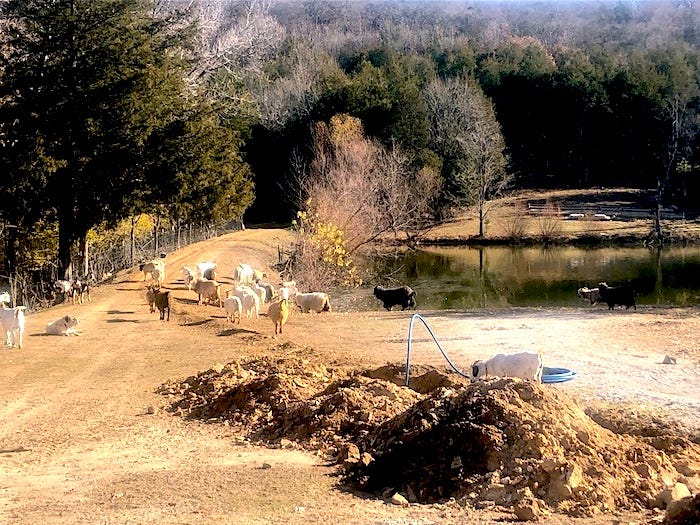
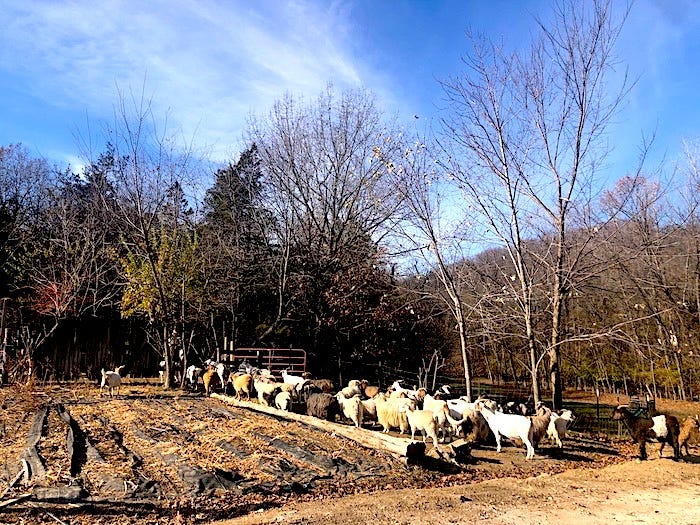
Grand Army Farm is Rosalie’s deal, and hers virtually alone. Her two college-bound kids help out now, but neither wants to take up farming when he graduates. Rosalie claims her husband is a “city boy” and that she’s worn him out.2 She runs this show, hiring help when needed, and she shears and processes the animals mostly herself.
She wakes early each day, around 4:30 am. That might sound odd to you, but it doesn’t to me, as I’ve long been one to wake between 3 and 5 am, full of plans for the day. She and I are around the same age, too, neither of us spring chickens, but I’m not sure I could flip a sheep to shear the way Rosalie does.
Born in Vietnam, Rosalie didn’t grow up on a farm but rather as the daughter of two physicians living in a city of 8 million people. She is both an MD and a PhD. She divides her time between the farm, which is about 40 minutes from St. Louis, and a Victorian home in St. Louis’ historic Lafayette Square. She dyes the angora and wool herself using natural ingredients. Rabbits were her gateway animal, but she’s slowly expanded her livestock holdings over the past 15 years since delving into farming at the tender age of 40.
The farm is tucked away off a back road, inside what people in the Ozarks call a “holler,” a hollow between steep hills. On the Saturday we toured, it was sunny and warm, though I could imagine those hills shutting out the sun and warmth on a cold winter’s day, except for where the lake is, which spreads out wide. The land came with a beautiful old gingerbread Victorian farmhouse. Rosalie says the day she came out to see the place before she bought it, a double rainbow appeared in the sky.
“I knew it was a sign,” she told me.
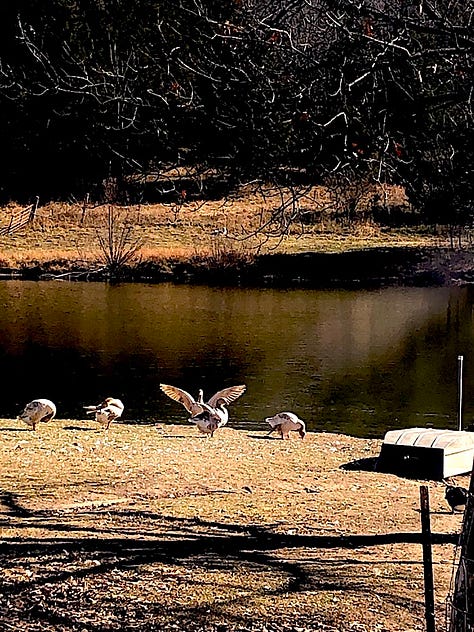

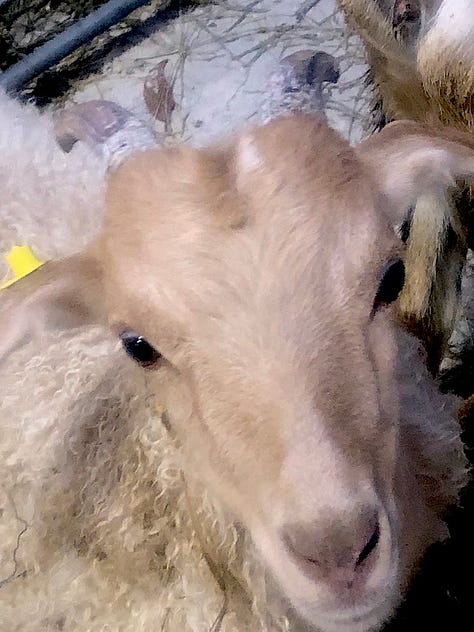
Nourishing Traditions, Sally Fallon. (Affiliate link. We might get a small commission at no extra cost to you if you purchase the book through the link.)
“An obstetric anesthesiologist breeds bunnies just beyond St. Louis.” St. Louis Magazine, May 2017.



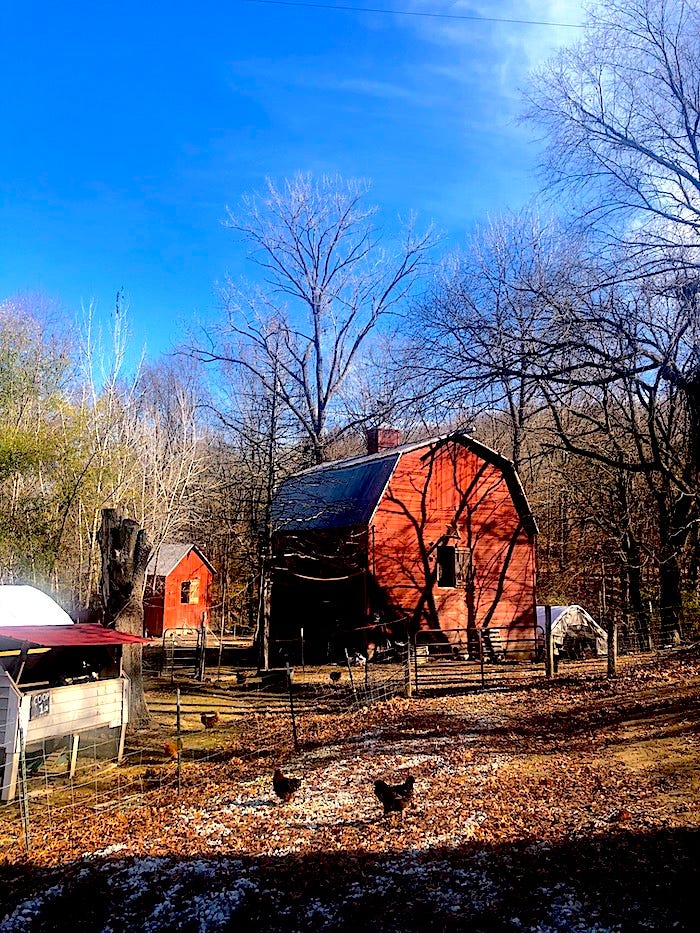
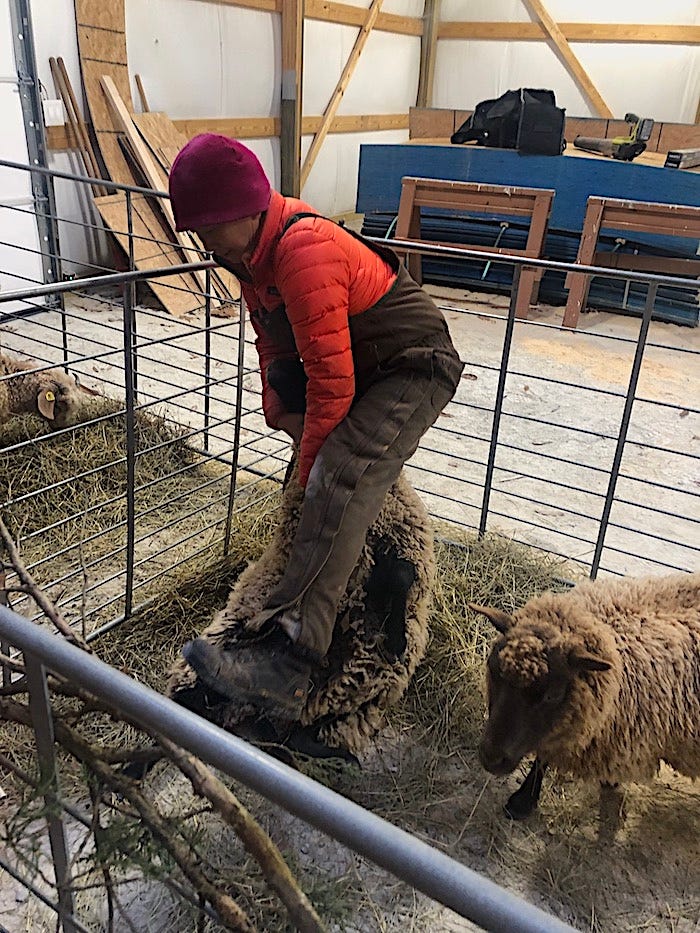
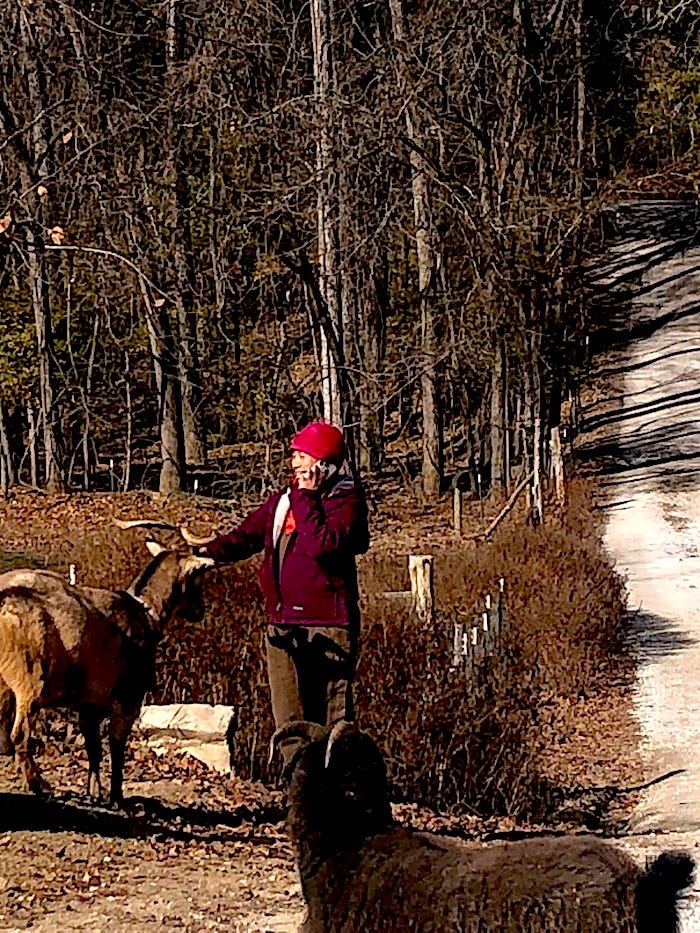
Thanks for the restack, @Renee Stevens ! Glad you like the tour.
What a lovely way to spend the day. How cool is it you got to meet the dairy goat & milk her. She sounds like a wonderful person.